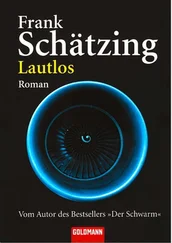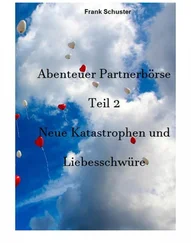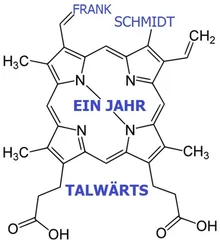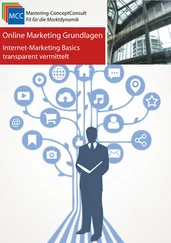The man wouldn’t let go. ‘The problem with the multinationals is that they haven’t a clue about the fusion business. I mean, some of the companies have pounced on photovoltaics, on wind and water power, bioethanol and all that stuff, but fusion technology and space travel – you’ll forgive me, but that’s not exactly your area of expertise.’
Palstein smiled.
‘I can tell you that at present Julian Orley is looking for investors for a second space elevator, not least to develop the infrastructure for the transport of helium-3. Of course we’re talking about vast amounts of money here. But we’ve got that money. The question is how we want to use it. My sector is in a state of shock at the moment. Should have seen it coming, you might say, so what do you think we should do? Go down in flames, feeling sorry for ourselves? EMCO isn’t going to achieve supremacy in solar energy, however much we might try to get a foothold in it. Other people are historically ahead of us there. So either we can watch one market after another breaking away until our funds are devoured by social programmes. Or we put the money into a second elevator and organise logistical processes on the Earth. As I have said, discussions are almost concluded, the contracts are about to be signed.’
‘When’s that due?’
‘At the moment Orley is staying with a group of potential investors on the Isla de las Estrellas. From there he will go on to OSS and the opening of Gaia. Yeah.’ Palstein shrugged in a gesture somewhere between melancholy and fatalism. ‘I was supposed to be there. Julian Orley isn’t just our future business partner, he’s also a personal friend. I’m sorry not to be able to take this journey with him, but I don’t need to remind you what happened in Canada.’
With these words he had rung the bell for round two. Everyone began talking at the same time.
‘Have they discovered who shot you?’
‘Given the state of your health, how will you get through the coming weeks? Did the injury—’
‘What are we to make of conjectures that the attack might have something to do with your decision to put EMCO and Orley Enterprises—’
‘Is it true that a furious oil worker—’
‘You’ve made loads of enemies with your criticism of abuses in your sector. Might any of them have—’
‘How are you generally, Gerald?’ asked Keowa.
‘Thanks, Loreena, not bad in the circumstances.’ Palstein raised his left hand until silence returned. His right arm had been in a sling for four weeks. ‘One at a time. I’ll answer all your questions, but I would ask you to show understanding if I avoid speculation. At the moment I can say nothing more except that I myself would love to know who did it. All I know for certain is that I was incredibly lucky. If I hadn’t stumbled on the steps up to the podium, the bullet would have got me in the head. It wasn’t a warning, as some people thought, it was a botched execution. Without any doubt at all, they wanted to kill me.’
‘How are you protecting yourself at the moment?’
‘With optimism.’ Palstein smiled. ‘Optimism and a bullet-proof vest, to tell you the truth. But what use is that against shots to the head? Am I supposed to go into hiding? No! Was it Tschaikovsky who said you can’t tiptoe your way through life just because you’re afraid of death?’
‘To put it another way,’ said Keowa, ‘who would benefit if you disappeared from the scene?’
‘I don’t know. If anyone wanted to stop us merging with Orley Enterprises, he would destroy EMCO’s biggest and perhaps only chance of a quick recovery.’
‘Maybe that’s the plan,’ a voice called out. ‘Destroying EMCO.’
‘The market’s become too small for the oil companies,’ said someone else. ‘In fact the company’s death would make sense in terms of economic evolution. Someone eliminating the competition in order to—’
‘Or else someone wants to get at Orley through you. If EMCO—’
‘What’s the mood like in your own company? Whose toes did you tread on, Gerald?’
‘Nobody’s!’ Palstein shook his head firmly. ‘The board approved every aspect of my restructuring model, and top of the list is our commitment to Orley. You’re fumbling around in the dark with assumptions like that. Talk to the authorities. They’re following every lead.’
‘And what does your gut tell you?’
‘About the perpetrator?’
‘Yes. Any suspects in mind?’
Palstein was silent for a moment. Then he said, ‘Personally I can only imagine it was an act of revenge. Someone who’s desperate, who’s lost his job, possibly lost everything, and is now projecting his hatred onto me. That I could understand. I’m fully aware of where we are right now. A lot of people are worried about their livelihoods, people who had confidence in us in better years.’ He paused. ‘But let’s be honest, the better times are only just beginning. Perhaps I’m the wrong man to say this, but a world that can satisfy its energy needs with environmentally friendly and renewable resources makes the oil economy look like a thing of the past. I can only stress again and again that we will really do everything we can to secure EMCO’s future. And thus the future of our workforce!’
* * *
An hour later Gerald Palstein was resting in his suite, his head cradled on his left arm, his legs stretched out as if it would have taken too much effort to cross them. Dog-tired and raddled he lay on the bedspread and stared up at the canopy of the four-poster bed. His delegation was staying in the Sheraton Anchorage, one of the finer addresses in a city not exactly blessed with architectural masterpieces. Anything of any historical substance had fallen victim to the 1964 earthquake. The Good Friday earthquake, as it was known. The most violent hiccup that seismologists had ever recorded on American territory. Now there was just one really beautiful building, and that was the hospital.
After a while he got up, went into the bathroom, splashed cold water into his face with his free hand and looked at himself in the mirror. A droplet hung trembling on the tip of his nose. He flicked it away. Paris, his wife, liked to say she had fallen in love with his eyes, which were a mysterious earthy brown, big and doe-like, with thick eyelashes like a woman’s. His gaze was filled with perpetual melancholy. Too beautiful, too intense for his friendly but unremarkable face. His forehead was high and smooth, his hair cut short. Recently his slender body had developed a certain aesthetic quality, the consequence of a lack of sleep, irregular meals and the hospital stay in which the bullet had been removed from his shoulder four weeks previously. Palstein knew he should eat more, except that he barely had an appetite. Most of what was put in front of him he left. He was paralysed by an unsettlingly stubborn feeling of exhaustion, as if a virus had taken hold of him, one that occasional snoozes on the plane weren’t enough to shake.
He dried his face, came out of the bathroom and stepped to the window. A pale, cold summer sun glittered on the sea. To the north, the snow-covered peaks of the Alaska chain loomed into the distance. Not far from the hotel he could see the former ConocoPhillips office. Now it bore the EMCO logo, in defiance of the change that was already under way. There were still office spaces to let in the Peak Oilfield Service Company building. UK Energies had put a branch of their solar division in the former BP headquarters and rented out the rest to a travel company, and here too there were many empty spaces. Everything was going down the drain. Some logos had completely disappeared, such as Anadarko Oil, Doyon Drilling and Marathon Oil Company. The place was threatening to lose its position as the most economically successful state in the USA. Since the seventies, more than eighty per cent of all state income had flowed from the fossil fuels business into the Alaska Permanent Fund, which was supposed to benefit all the inhabitants. Support that they would soon have to do without. In the mid-term, the region was left only with metals, fishing, wood and a bit of fur-farming. Oil and gas too, of course, but only on a very limited scale, and at prices so low that the stuff would have been better off left in the ground.
Читать дальше












